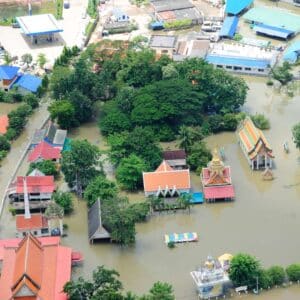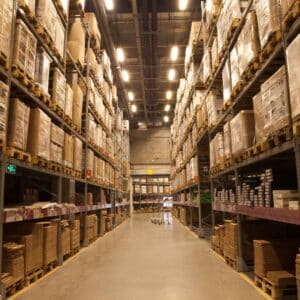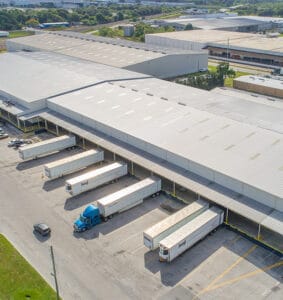When disaster strikes, the world doesn’t stop—and neither should your logistics operations. Natural disasters like hurricanes in Florida or unexpected disruptions can throw a wrench into even the most well-oiled supply chains. But with the right preparation, businesses can weather the storm and come out stronger. At CWI Logistics, disaster preparedness and resilience in logistics operations aren’t just buzzwords—they’re the backbone of how we keep goods moving and clients supported, no matter the circumstances.
In this article, we’ll dive into how CWI Logistics tackles disaster preparedness and resilience in logistics operations, ensuring seamless service levels and unwavering client support during crises.

Why Disaster Preparedness Matters in Logistics
Logistics is the lifeblood of commerce, and disruptions—whether from a Category 5 hurricane or a sudden infrastructure failure—can ripple through supply chains, halting operations and leaving businesses scrambling. In Florida, where hurricanes are a seasonal reality, the stakes are even higher.
According to FEMA, 40%+ of small to mid-sized businesses don’t reopen after a disaster, and another 25% fail within one year. For logistics providers like CWI Logistics, the mission is clear: prepare proactively, respond effectively, and maintain resilience to keep clients’ operations running smoothly.
Disaster preparedness and resilience in logistics operations aren’t optional—they’re essential. They involve a mix of:
- Risk assessment
- Contingency planning
- Business continuity strategies
- Cutting-edge technology to manage real-time disaster response
At CWI Logistics, we’ve honed these practices to not only survive disruptions but to thrive through them, delivering reliability when it matters most.
1. Risk Assessment: Seeing the Storm Before It Hits
The first step in disaster preparedness is knowing what you’re up against. For CWI Logistics, that starts with comprehensive risk assessment. Florida’s hurricane season, running from June to November, brings predictable threats—high winds, flooding, and power outages—that can disrupt transportation routes and warehouse operations.
But risks aren’t limited to weather. Unexpected disruptions like equipment failures, cyberattacks, or even global pandemics can also derail logistics. Our team at CWI Logistics digs deep into historical data and local vulnerabilities to map out potential threats. For example, we analyze past hurricane patterns in Florida to pinpoint high-risk zones where our warehouses and transportation hubs operate.
We also assess our supply chain partners—suppliers, carriers, and vendors—to identify weak links that could falter under pressure. This thorough approach ensures we’re not just reacting to disasters but anticipating them, giving us a head start on mitigation.
2. Contingency Planning: A Playbook for Every Scenario
Once risks are identified, contingency planning kicks in. Think of it as a playbook for chaos—a set of preemptive strategies to keep operations humming when the unexpected happens. At CWI Logistics, we don’t believe in one-size-fits-all solutions. Every client’s needs are unique, so our contingency plans are tailored to their specific requirements.
For hurricanes in Florida, we can preposition critical supplies like food, water, and medical equipment in strategic warehouses across the state. This ensures rapid deployment to affected areas, whether we’re supporting law enforcement, nonprofits, or commercial clients. We also diversify transportation options, securing alternative routes and carriers to bypass flooded roads or damaged infrastructure.
If a primary supplier goes offline, we often have backup partners ready to step in. This redundancy is key to maintaining service levels, ensuring that delays are minimized and clients stay operational.
Take Hurricane Ian in 2022, which caused $112 billion in damages across Florida. While many businesses struggled to recover, CWI Logistics leaned on our contingency plans to keep goods flowing. Our prearranged agreements with transportation providers and secure storage facilities allowed us to protect and move inventory, proving that preparation pays off.
3. Business Continuity Strategies: Keeping the Wheels Turning
Disaster preparedness isn’t just about surviving the immediate crisis—it’s about ensuring long-term resilience. That’s where business continuity strategies come into play. At CWI Logistics, we focus on keeping critical functions alive during and after a disruption, so clients don’t miss a beat.
Our business continuity plans prioritize essential operations—warehousing, transportation, and client communication. We maintain multiple warehouse locations throughout Florida, reducing the risk of a single point of failure. If one facility is impacted by a hurricane, others can pick up the slack. We also invest in robust data backup systems, ensuring that critical information like shipment tracking and inventory levels remains accessible, even if power or internet service is knocked out.
Training is another cornerstone of our strategy. We prepare for disasters ahead of the storm. These exercises sharpen our response times and build confidence, so when a crisis hits, we’re ready to act.
4. Technology: Real-Time Disaster Response Management
In today’s world, technology is a game-changer for disaster preparedness and resilience in logistics operations. At CWI Logistics, we harness advanced tools to stay ahead of disruptions and manage responses in real time.
Real-time tracking systems give us eyes on every shipment, allowing us to reroute deliveries on the fly if conditions deteriorate. During a hurricane, when roads might close without warning, this visibility is invaluable. These tools don’t just enhance efficiency—they ensure we can pivot quickly, keeping service levels steady for clients.
Communication tech is just as critical. Our emergency protocols include dedicated channels to keep clients, partners, and employees in the loop. Whether it’s updating a nonprofit on relief supply arrivals or coordinating with law enforcement during a crisis, clear, timely communication builds trust and keeps operations aligned.
Maintaining Service Levels and Supporting Clients During Crises
At the heart of CWI Logistics’ approach is a commitment to our clients. Disasters don’t just test our systems—they test our relationships. Our goal is to maintain service levels and provide unwavering support, no matter the challenge. When a hurricane disrupts Florida, we’re not just moving goods; we’re delivering peace of mind.
For example, our 3PL (third-party logistics) partnerships mean clients don’t have to worry about the details. We handle warehousing, transportation, and last-mile delivery, even under duress. During a crisis, we prioritize critical shipments—think emergency supplies for first responders or perishable goods for retailers—ensuring they reach their destinations on time.
Our diversified supplier network and flexible logistics solutions mean we can adapt to shifting demands, keeping clients’ supply chains intact. Whether we’re supporting Florida law enforcement with hurricane relief or helping a business recover lost ground, our focus remains the same: resilience that translates into results. Clients know they can count on us to be their rock in the storm.
Building a Resilient Future with CWI Logistics
Disaster preparedness and resilience in logistics operations aren’t just about surviving the next hurricane—they’re about building a foundation for long-term success. At CWI Logistics, we’ve made it our mission to turn challenges into opportunities.
By blending risk assessment, contingency planning, business continuity strategies, and cutting-edge technology, we’ve created a logistics framework that stands up to the toughest disruptions.
For businesses in Florida and beyond, partnering with CWI Logistics means more than just logistics support—it means a teammate who’s ready for anything. Hurricanes may be inevitable, but downtime doesn’t have to be. Reach out to us to see how we can revolutionize your disaster preparedness and keep your operations resilient, no matter what comes next. Because at CWI Logistics, we don’t just weather the storm—we rise above it.





